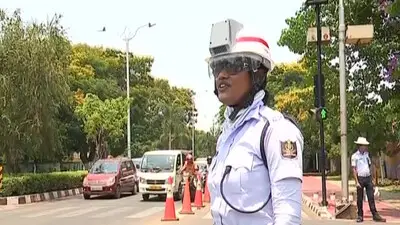Indian Prime Minister Manmohan Singh made this declaration to a thunderous applause from the Heads of Government and State at the inauguration of the 17th Summit of the eight-nation SAARC grouping. Leaders of Bangladesh, Bhutan, Maldives and Nepal which comprise the Least Developed Countries (LDC) in South Asia were among those present to hear Singh`s announcement.
In his speech, that was heard with rapt attention, Singh also said that he recognised that non-tariff barriers were an area of concern and India was committed to the idea of free and balanced growth of trade in South Asia.
Emphasising that integration of SAARC economies should move faster at a comfortable pace, he said India has special responsibilities that flow from the geography of the region and the size of its economy and market.
"I am happy to announce that, in a major trade liberalisation effort, the Government of India has issued a notification to reduce the Sensitive List for the Least Developed Countries under the South Asian Free Trade Area Agreement from 480 tariff lines to 25 tariff lines. Zero basic customs duty access will be given for all items removed with immediate effect," he said.
With `Building Bridges` as its theme, the Summit hosted by Maldives in the southern most point of the island lying south of equator, is being attended by Pakistan Prime Minister Yousuf Raza Gilani, Sri Lankan President Mahinda Rajapaksa and Bangladesh Prime Minister Sheikh Hasina among others.
President Mohammad Nasheed of Maldives in his inaugural address said the meeting should build on the momentum of its earlier decision on the full implementation of the South Asia Free Trade Agreement (SAFTA).
In order to realise the full implementation of SAFTA, he said the Summit should mandate the Finance Ministers to discuss a mechanism to promote capital flows and investments and to see progress that would result in ultimate scrapping of the SAFTA Sensitive List.
Singh said industries in the South Asian region have to learn to compete if their economies were to have a future in the globalised world.
"We can all benefit from our respective comparative advantages. These include our hydro-power and natural resource endowments, possibilities of earnings from transit, marine resources, our scientific and technological base and above all our young population which will drive consumption and investment in the years ahead. We should expedite the finalisation of the SAARC Agreement on Investment," he said.
Singh, who last week attended the G20 Summit, referred to the acute crisis in the global economy, which he said has imposed a fresh and entirely uncalled for burden on developing countries. "We hope that the leaders of the major economies, particularly in the Eurozone, will show the wisdom and will that are required to revive the global economy," he said.
However, he said that the world economy was going to take time to recover. "In the meantime developing countries like ours will be squeezed for capital, investments and markets for our exports.
We should seek imaginative ways to create new avenues and sources of growth and investment in South Asia," Singh said. "If we can create favourable conditions for development at home, there is no reason why our investors should seek greener pastures elsewhere. The complete normalisation of trade relations will create huge opportunities for mutually beneficial trade within South Asia," Singh said.
He said in his discussion with leaders of South Asia, he sensed a collective commitment and desire to give greater meaning and content to SAARC. But he added, "Admittedly, there is a lot to be done but the political will is there. We have all come to believe that regional cooperation is good for each one of our countries".
He reaffirmed that India will do whatever is within its capabilities to make SAARC an effective instrument to deliver on vision of common peace, shared prosperity and cooperation.
Singh said the SAARC leaders should work to create a climate whereby the wealth generated by the countries is invested back into the region. "This will be the most ringing endorsement of our vision of a regional economy without boundaries," he said.
The Prime Minister said there are promising signs that South Asia is increasingly getting plugged into the growth dynamic of Asia. He noted that despite all the difficulties, SAARC countries have been able to maintain a respectable growth rate in the last few years.
Singh said SAARC should aim to conclude a regional Air Services Agreement, for which India would be happy to host a meeting of officials next year.
He also referred to a Regional Railway Agreement and a Motor Vehicle Agreement, which has been in discussion for a long time. "Let us agree to conclude these agreements as a matter of priority. India, Maldives and Sri Lanka are in the process of developing regional ferry services. We should replicate many more such connectivity arrangements in other parts of our sub-continent," Singh said.
He also stressed on improving telecommunication linkages to reduce call rates and telecommunication tariffs and interconnection termination charges.
Commending the Postal Administrations of SAARC for agreeing to establish a South Asian Postal Union, the Prime Minister said India is happy to host the ad hoc Secretariat for the Union, and to sponsor training courses at its Postal Staff College to train up to ten SAARC officials per year, belonging to interested member states.
He also sought greater broadcasting, television and film exchanges among the member countries. "It is time that we overcome the information deficit among the SAARC countries. We should encourage our people to know more about each other," he said.
Singh also announced a series of initiatives that India will take for greater people-to-people contact in the South Asian region.
He said India will host a conclave of the top dozen tour operators from the SAARC region to boost tourism exchanges. "We will take the initiative to establish a travelling exhibition on the ancient history of South Asia. This could comprise of a hundred archeologically-significant pieces per country to be selected by member states. The exhibition can be hosted in each of our national museums in turn for three months," he said.
Singh noted that post-graduate courses in the South Asian University have started in July 2010. He said India will increase the number of SAARC Silver Jubilee Scholarships for the South Asian University from 50 to 100. 75 of these will be at the Masters level and 25 at the doctoral level.
"Protecting our environment even as we pursue rapid growth is essential. The India Endowment for Climate Change which I had announced last year has been established. We look forward to receiving project proposals from our SAARC partners," he said.
Singh also announced a total of ten scholarships per year to SAARC member states for post-graduate and doctoral studies in forestry courses at the Forestry Research Institute of India, Dehradun.
He said the destiny of South Asia "lies in our own hands" and noted that SAARC provides a platform to put aside differences and work towards a higher calling. "We have a long way to go, but I am confident that we can realise our true potential through sustained effort," he said.
He ended his speech by saying: "We have to learn to trust each other and to learn from each other. The security and stability of our countries are closely interlinked. None of us can prosper in isolation to each other. We cannot afford to allow the many problems we face to stand in the way of our ambitions and dreams".












